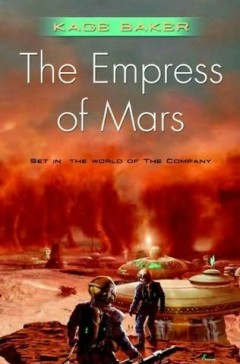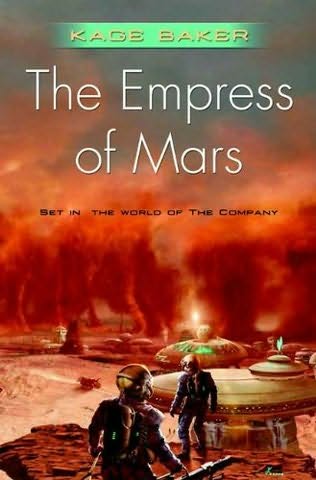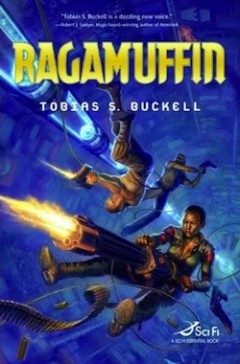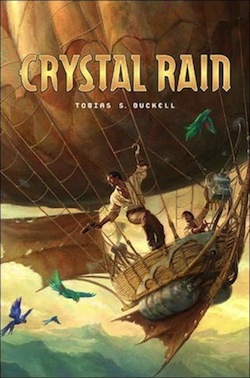- In July, Amazon announced that Kindle book sales had surpassed hardback book sales. Analysts pooh-poohed this milestone as paperback sales are far greater than hardback sales. But now Kindle book sales have overtaken paperback sales as well. Amazon is now selling more digital or ebooks in its bookstore now than physical print books. We’ve reached a turning point in the way people read books.
There is still a ways to go, however, for ereader owners are still buying print books and ereader ownership is still not mainstream. While the adoption of ereaders is spreading, even at an accelerating pace, a recent survey of book shoppers shows that only 21% own one. I don’t own one yet, though I hope to buy an Android tablet in the next year or so.
I’m not sure print books will ever go the way of the dodo. Print books will increasingly have collector value. Some people may still prefer reading them, if only out of nostalgia for a bygone era. There are ways to add value to a print book as well: high-quality production, handwritten signatures, personal notes, and so on.
Geoffrey Allan Plauché
Help Promote Prometheus Unbound by Sharing this Post

In an interview with The 99% — Francis Ford Coppola: On Risk, Money, Craft & Collaboration — Coppola offers some very insightful and sensible remarks about creativity, copyright, the role of copying and imitation in the development of art and an artist’s own voice, the business of the arts, and immortality. As Cory Doctorow writes: “It’s always great to learn about seasoned, accomplished artists who refuse the lure of reactionary, knee-jerk get-off-my-lawnery.”
I once found a little excerpt from Balzac. He speaks about a young writer who stole some of his prose. The thing that almost made me weep, he said, “I was so happy when this young person took from me.” Because that’s what we want. We want you to take from us. We want you, at first, to steal from us, because you can’t steal. You will take what we give you and you will put it in your own voice and that’s how you will find your voice.And that’s how you begin. And then one day someone will steal from you. And Balzac said that in his book: It makes me so happy because it makes me immortal because I know that 200 years from now there will be people doing things that somehow I am part of. So the answer to your question is: Don’t worry about whether it’s appropriate to borrow or to take or do something like someone you admire because that’s only the first step and you have to take the first step…
You have to remember that it’s only a few hundred years, if that much, that artists are working with money. Artists never got money. Artists had a patron, either the leader of the state or the duke of Weimar or somewhere, or the church, the pope. Or they had another job. I have another job. I make films. No one tells me what to do. But I make the money in the wine industry. You work another job and get up at five in the morning and write your script.
This idea of Metallica or some rock n’ roll singer being rich, that’s not necessarily going to happen anymore. Because, as we enter into a new age, maybe art will be free. Maybe the students are right. They should be able to download music and movies. I’m going to be shot for saying this. But who said art has to cost money? And therefore, who says artists have to make money?
(Image: Coppola Francis Ford at Cannes in 2001, Ed Fitzgerald/Wikimedia Commons)
[Via C4SIF and Boing Boing.]
Help Promote Prometheus Unbound by Sharing this Post
Amusing bibliophile-parody music video — I’m Reading a Book — by Julian Smith:
Help Promote Prometheus Unbound by Sharing this Post

 The Empress of Mars
The Empress of Mars
By Kage Baker
Trade paperback, 304 pages
Tor (2009), $10.87
The Empress of Mars was written by the late Kage Baker (June 10, 1952 — January 31, 2010; 1st name pronounced like ‘cage’). It started out as a novella (Asimov’s Science Fiction Magazine July 2003), which won the 2004 Theodore Sturgeon Award and was nominated for a Hugo Award and a Nebula Award, but was later expanded into the full-length novel published in 2009 that I review here.
The Empress of Mars is not Martian royalty. This is not Barsoom, the Mars of Edgar Rice Burroughs. You won’t find a John Carter-type hero fighting native Martians and rescuing princesses within these pages, though Baker does pay homage to Burroughs’ Mars tales. Tars Tarkas makes an appearance as the Martian Santa Claus, for example.
No, The Empress of Mars is a restaurant and bar owned by one Mary Griffith, an early settler of Mars and former biological scientist. A tough, motherly figure, Mary Griffith embodies the rugged individualism and pioneer spirit that pervades Baker’s The Empress of Mars. Baker’s tale is more scientifically literate than Burroughs’, and qualifies (mostly at least, see below) as hard science fiction, leavened with superior writing and humor. It is set some unspecified time after the year 2186 — marking a past event, the year the Kutuzov expedition discovered Olympus Mons is not an extinct shield volcano, it was the only date I recall seeing in the novel.
The story revolves around Mary, her three daughters, and a host of other quirky characters, some of whom she takes under her wing, others she befriends or does business with, as they deal with at first neglect by and then interference from the bureaucrats of the British Arean Company (BAC).
Help Promote Prometheus Unbound by Sharing this Post
Innovative Funding Experiment(s) at Clarkesworld Magazine
in Fantasy Fiction, IP, Magazines, News, Science Fiction, Short Fiction
Clarkesworld Magazine is an online science fiction and fantasy magazine that features at least two original short stories per month from new and established authors as well as artwork, podcasts, and non-fiction articles. Founded in October 2006 by Neil Clarke, its online content is totally free. The magazine has been experimenting with innovative methods of funding. No paywalls or DRM or desperate IP aggression here.
While its content is freely available online, Clarkesworld sells print versions of its fiction. An annual anthology series, Realms, is available in trade paperback, hardcover, and ebook formats. Additionally, several months after online publication, each month’s fiction is collected in chapbook form; the value-add here is that the chapbooks are limited print run (100), numbered editions that are signed by the authors. If you happen to have a tablet pc or ereader, you can also purchase ebook editions of each monthly online issue in epub or mobi/kindle format.
Help Promote Prometheus Unbound by Sharing this Post


Steampunk is currently all the rage, but this book was published before steam engines and airships and whatnot became recently fashionable. And besides, Crystal Rain (Tor, 2007) is not your ordinary steampunk. It has a healthy dose of post-apocalyptic science fiction as well, but here too Crystal Rain breaks the mold. On the one hand, the setting includes sailboats and airships, gaslights, firearms, and, mostly in Capitol City, steam-powered trains, cars, and even a ship, and trolly-like electric cars. I don’t recall any conspicuous leather, aviation goggles, brass, or clockwork though. On the other hand, we quickly find out that this story takes place centuries after some cataclysmic disaster. There are near-mythical stories of the “old fathers,” and Preservationists seek to restore lost technologies. A barren area inland called Hope’s Loss causes people who travel through it to sicken and die. To add another twist, we quickly discover the story takes place not on Earth, but some distant planet, by the casual description of two moons in the sky and tales of the old fathers traveling to the land of Nanagada via “worm’s holes” and warming the planet with mirrors in the sky that have since crashed and burned. Turns out Nanagada is a lost colony planet. Caribbean-born author Tobias Buckell adds spice to the mix by populating the setting of his debut novel with a collection of mostly non-white races, dominated by Caribbean culture and dialect.
Actually, the first hints that you’re not reading the typical steampunk or post-apocalyptic novel come in the prologue when a mysterious black man with dreadlocks, dressed in top hat and trenchcoat, falls out of the sky in a “steaming metal boulder,” speaks gibberish to the natives for a minute, then after manipulating his throat suddenly speaks their language. He appears tired and thin, weak, so the natives take him back to their village — though he has strength left in him to kill a jaguar effortlessly with his bare hands on the way. After a week of pigging out, he’s all buffed out. All he tells them is that he’s looking for an old friend. This mysterious, superhuman figure we later find out to be Pepper, who features in several subsequent novels and short stories by Buckell. The author handles him well. Pepper has his limits, which are tested in the novel, and while he often appears to be a “looking out for #1,” cold-blooded mercenary-type, Buckell manages to give him a depth that defies expectations.
But the main protagonist of Crystal Rain is the man Pepper is looking for: John deBrun. John is a sailor, fisherman, and painter, with a hook in place of the left hand that he lost to frostbite on an ill-fated excursion to the icy north. He remembers nothing of his past from before he washed ashore 27 years prior in the town of Brungstun near the Wicked High Mountains that separate the Nanagadan Peninsula from the rest of the continent. But he has an uncanny ability to navigate, as if he has a GPS in his head. He has settled down there, married, and has a 13-year old son. Oh, and he doesn’t seem to have aged much in those 27 years.
Little do most know at the start, but the Azteca, who live on the other side of the Wicked Highs, are being driven by their bloodthirsty gods, the Teotl, to cross the mountains and invade Nanagada. Another main viewpoint character, Oaxyctl (O-ash-k-tul), who is actually an Aztecan double agent spying for the Nanagadans, has the bad luck to be accosted by one if his gods and tasked with tracking down John deBrun and delivering him to it or else Oaxyctl’s life will be forfeit. The Teotl needs John alive because it believes he alone possesses secret codes to unlock the Ma Wi Jung. Whatever that is. (Heh. Is John “The Chosen One”?) Oaxyctl is placed in an impossible position: mortally afraid of his gods, still fundamentally an Aztecan despite working for the Nanagadans, he later comes to like John, whom he rescues from an Aztecan war party’s sacrificial altar after John had been separated from his family and captured. Buckell keeps us wondering when, or if, Oaxyctl will betray John’s trust.
Help Promote Prometheus Unbound by Sharing this Post
Another political-bureaucratic boondoggle at NASA. Just abolish the agency already and get out of the way of private space enterprises.
- NASA’s Ares rocket dead, but Congress lets you pay $500 million more for it: It’s all about pork (protecting jobs in a legislator’s home state), political wrangling over the federal budget, and the inherent inability of politics and bureaucracy to have the flexibility and alacrity of private enterprise.
The future of computing is near:
- 1,000-Core Chip Could Make PCs 20 Times Faster: The fastest consumer processors such as Intel’s Core i7 are limited to 6 cores, but “Scottish scientists have built a 1,000-core processor, claiming it will run 20 times faster than today’s chips while using less power. Dr. Wim Vanderbauwhede led a research team at the University of Glasgow to create the futuristic processor using a programmable chip called a field programmable gate array (FPGA).”
- Super Memory Breakthrough: Store Every Movie Made This Year on Your Phone (With Room to Spare): “IBM says they have made a significant leap forward in the viability of “Racetrack memory,” a new technology design which has the potential to exponentially increase computing power. This new tech could give devices the ability to store as much as 100 times more information than they do now, which would be accessed at far greater speeds while utilizing “much less” energy than today’s designs. In the future, a single portable device might be able to hold as much memory as today’s business-class servers and run on a single battery charge for weeks at a time.”
Help Promote Prometheus Unbound by Sharing this Post








